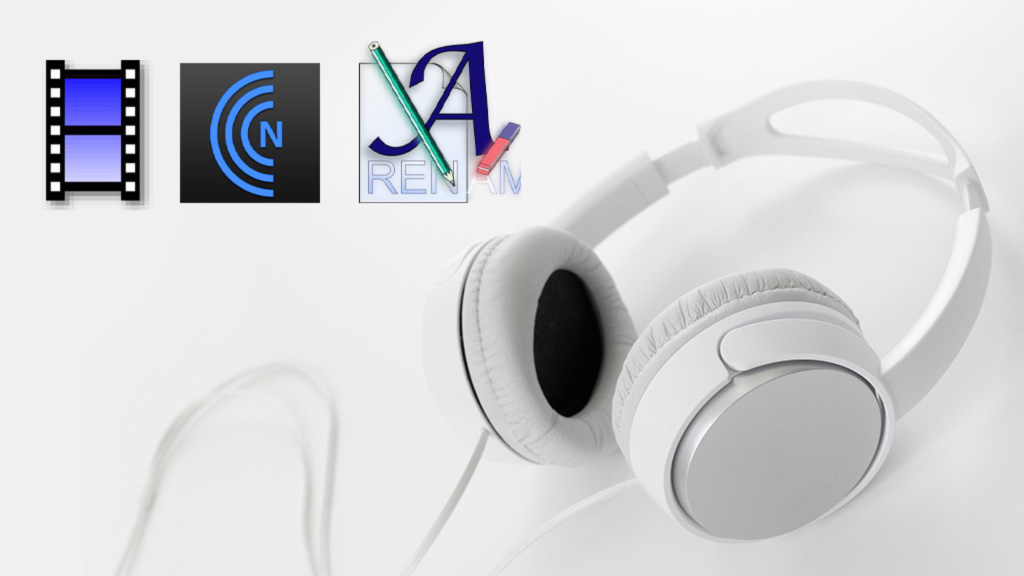I've been asked if I level the audio before or after editing.
I've now produced 112 Podcasts and the tools I use are available to you for FREE. I go through how to use them and some tips and tricks in the process. Levelator is another tool that I always keep handy for my audio editing and processing. It combines multiple audio processing tools in one, and it doesn’t take up any counter space either! NOTE: Levelator is NOT being developed any further. The creators have not made any plans to add features or anything.
The Levelator adjusts the audio levels within an audio segment by combining traditional discrete compression, normalization and limiting processing. By taking a global view of the data in various time segments (both long and short), the Levelator automatically balances various audio levels, such as multiple microphone levels in an interview or panel discussion, or segments combined from. Free, open source, cross-platform audio software. Audacity is an easy-to-use, multi-track audio editor and recorder for Windows, Mac OS X, GNU/Linux and other operating systems. Developed by a group of volunteers as open source and offered free of charge. Amazing support community. I've now produced 112 Podcasts and the tools I use are available to you for FREE. I go through how to use them and some tips and tricks in the process.

I always run audio through a normalizing, compression and leveling process BEFORE editing.

My reason for this is so I don't have to go through the project a second time if the process increases the volume of breaths between sentences.
I always use Levelator, a free and easy program for Mac that does a great job leveling .wav and .aiff files FAST. There are other programs, like Auphonic, but Levelator ain't broke so I'll keep using it.
Split the tracks before leveling

There is one step I take prior to running files through Levelator: *Split the tracks.

*In Audacity: Click the little triangle in the Track Control Panel and select Split Stereo to Mono. This will cause each Left and Right channel to become their own track.
Some of my clients send me their files with one person on the left channel and another on the right. Before I run the file through a leveling process I need to split the tracks.
Watch this video to find out WHY IT'S IMPORTANT TO DO IT IN THIS ORDER.
UPDATE: Levelator does not work on Mac OS Catalina or newer
Want to know how to edit your podcast FASTER?
Check out my course that teaches you many of the hacks and processes I put in place to edit more than 20 shows a week.

From Wikipedia
Levelator 1.1.0 screenshot on Windows XP | |
| Developer(s) | The Conversations Network |
|---|---|
| Stable release | 1.4.1 / August 2008 |
| Operating system | Windows, Mac, Linux |
| Type | Audio Editing Software |
| License | Freeware |
| Website | Levelator Homepage |
The Levelator is a free application distributed by The Conversations Network and developed by Bruce and Malcolm Sharpe, Norman Lorrain and Doug Kaye. It was unveiled to the public at the first Podcast and New Media Expo in 2005. The Levelator adjusts the audio levels within an audio segment as opposed to traditional compression, normalization and limiting. It creates a new copy of the audio sample which has balanced levels and a standard overall volume. By taking a global view of the data in various time segments (both long and short), the Levelator automatically balances various audio levels such as multiple microphone levels in an interview or panel discussion. The underlying code was originally used only for The Conversations Network's own podcasts (eg, IT Conversations), but was then released to the public, free for commercial and non-commercial use. The adjustments and Drag-And-Drop workflow of the program has made it a great boon for professional and non-professional broadcasters and podcasters.
Levelator Vs Audacity
The program only supports PCM audio (WAV or AIFF files) since the ultimate goal of the program is to “improve audio,” and not sustain the audio sample to multiple lossy compressions (a 64-kbit/s mp3 exported again as a 64-kbit/s mp3 sounds similar to a 32-kbit/s mp3). Each processed audio file is exported in the same format as the original, but with '.output ' inserted into the filename.
How To Use Audacity
Originally distributed by GigaVox Media, Inc (a for-profit company), those rights were transferred to The Conversations Network (a California 501(c)(3)) in 2008.
Example of Levelator
Screenshot of before and after renderings of an audio sample adjusted by the Levelator as seen in Audacity.
Cn Levelator
See also
Levelator For Audacity
External links
